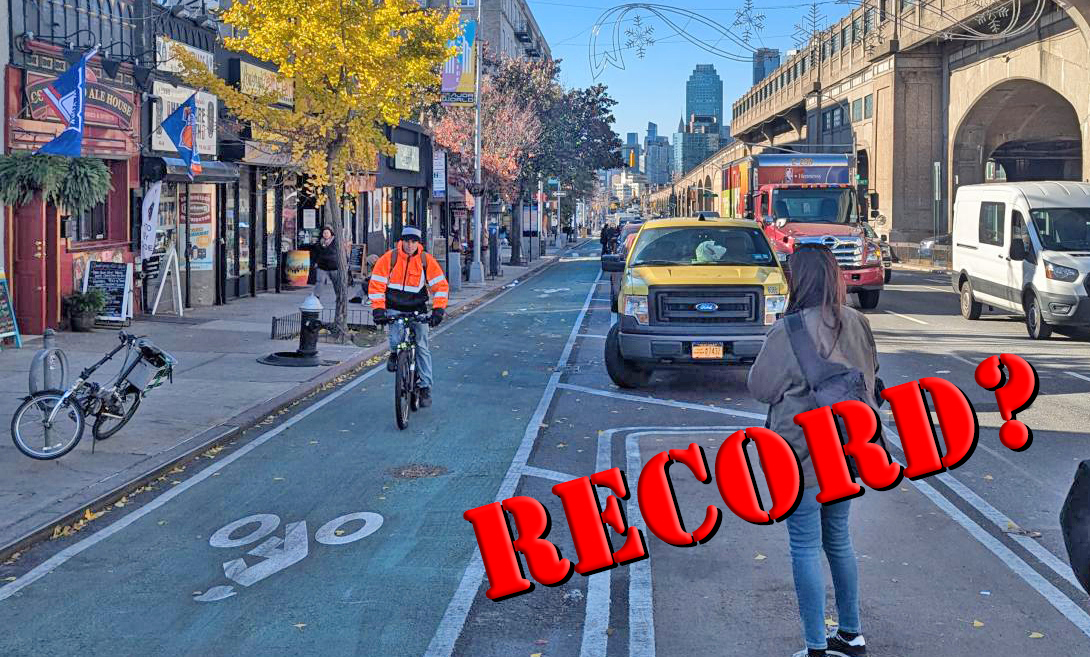States and cities across the country have adopted standards from the National Association of City Transportation Officials' Urban Street Design Guide, a blueprint for safe, multi-modal streets that made its debut last fall.

New York City is among those cities that have incorporated NACTO guidelines, and this month Tennessee became the sixth state to do so. But Matthew Norris of the Tri-State Transportation Campaign notes that New York State, New Jersey, and Connecticut haven't embraced NACTO principles.
It’s encouraging to note that until recently, places such as metropolitan Nashville were on a similar trajectory to much of the nation by building infrastructure that promoted suburban sprawl development, but have since responded to the demand for walkable, higher density development by planning for growth along existing corridors and downtowns. Analysis of recent commercial real estate trends shows that walkable urban and suburban places demand a 74 percent rental premium over auto-dominated suburban areas. Likewise, 85 percent of all recently built rental apartments have been built in walkable urban places.
The NACTO design standards are more conducive to walking and biking than those endorsed by the American Association of State Highway and Transportation Officials (AASHTO), which still don't include treatments like protected bike lanes. AASHTO design guidelines remain the model for state DOTs in the New York City metro region
"While complete streets efforts are advancing in New Jersey, Connecticut and New York, policy implementation has not been as progressive or efficient as it could be," writes Norris. "State departments of transportation in the tri-state region should follow the lead of Tennessee (as well as Washington, Massachusetts, California, Utah and Minnesota) in order to create the type of safe, walkable and vibrant corridors that residents are demanding."
Streetsblog has asked NYS DOT if it intends to adopt NACTO standards. We will update this post if we get an answer.





